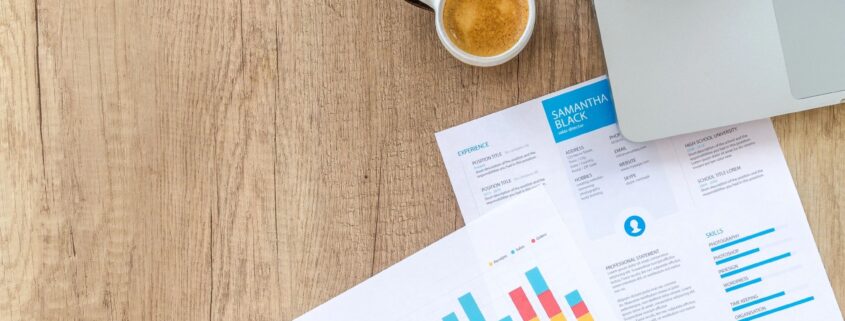Accounting Tools for Artists
You can sign up for our Business of art newsletter to get great content in the comfort of your own inbox.
Let’s face it: Doing accounting for your business probably isn’t at the top of the list of things you enjoy doing. After all, you probably became an artist to express yourself, and spreadsheets and tracking income and expenses is probably not your preferred medium. Yet, as someone who wants to earn a living doing what you love most, you need to do at least a little bit of accounting.
“Why?” you may ask yourself.
For one, it is important to know your financial health. Just as taking care of your physical health allows you to create more art, a healthy perspective on your money will serve both your business and your creativity. Of course, you want to make sure you report the right amount of income and pay your taxes correctly in order to avoid major penalties and life-wrecking finances later down the road. And you might be surprised by how exciting it can be when you can see how your business is doing financially—especially when you’re profitable. Good accounting will also improve your pricing! Ultimately good accounting can give you more time in the studio and less time worrying.
Luckily, technology is here to help! There are a number of great financial tools for artists out there to help with accounting. Here are three that I like to use and that I’ve seen work well for some of my clients.
Before we get to the financial tools for artists, it is important to note that the best tools for your business are the ones you will use. A powerful and great looking app may not be as helpful as a paper and pen sometimes. Choose the tool you want to learn and are willing to embrace!
Spreadsheets
I know, you’re probably thinking there’s nothing less interesting than a spreadsheet. I feel your pain. But hear me out: The spreadsheet is a powerful tool that, when set up correctly, can make accounting a breeze while also giving you all the information you need to properly run your business.
The best thing about spreadsheets: You can set spreadsheets up anyway you like. They’re incredibly flexible to serve multiple purposes, and they are low cost or even free!
The worst thing about spreadsheets: You have to have a basic understanding of how they work and how to manipulate them to get the most use out of them. They are also pretty boring to look at.
The good news is that there are plenty of templates out there that might be perfect for you, so you don’t have to start from scratch. There are also plenty of resources on how to utilize spreadsheets and even set them up for financial purposes. Finally, there are a number of free platforms out there that offer spreadsheets, such as Google Sheets or Apache Open Office. So, it’s often just a matter of finding the platform you prefer and choosing an appropriate template.
Spreadsheets are a great financial tool for artists that are just getting started in business. The price is right, they are pretty easy to learn how to use and understand, and there are many individuals who utilize spreadsheets and can possibly help.
Quickbooks
Sometimes, it’s good to just pick a well known entity. And in the world of accounting tools, that winner is Quickbooks.
Quickbooks is the industry go-to for accounting software for small business owners. Unlike spreadsheets, you have to pay for Quickbooks, but they offer a few different packages to fit different budgets. The cool thing about Quickbooks is its many functions. You can track income and expenses, use it to send invoices to customers, send reminder invoices to customers, manage and pay bills, track inventory, and prepare for your taxes.Quickbooks offers a lot of automation and can connect to your bank account too. Quickbooks might be worth the investment as it will save you a ton of time and headaches. It also generates reports that can help you make better business decisions that give you more resources (money) and enables more time to create.
Quickbooks is a great financial tool for artists who have figured out their business to some degree. They likely have gone through a tax season or two and know what their sources of revenue are and what expenses to track. There are excellent resources and lots of professionals to help set it up as well as possibly do the financial work. It is a great financial tool for an artist who wants to automate some of their finance work and is interested in how finances can influence operational decisions.
The challenging thing about Quickbooks is that it requires at least a basic understanding of accounting terminology and principles. It also requires a bit of time and effort to set it up properly. You can certainly do this yourself, but there are plenty of accountants out there who are more than happy to help you with this.
HoneyBook
Want something that’s easy to learn, easy to use, and kinda pretty? If so, you might want to consider HoneyBook.
HoneyBook calls itself a platform to get everything done that you need to. In addition to accounting features, it can help you manage projects, clients, proposals, and more. It helps you manage essential documents (contracts, invoices, etc.), and allows you to streamline client communications into a single platform. You can manage bookings (such as if you’re scheduling photoshoots) and payments. Honeybook can be a great place to manage your customer contacts, particularly for relationships points like quotes/estimates, invoices, and tax reporting. For the full price ($390/year at the time of this writing) you get all the platform’s features, but they do have more affordable plans if you don’t want to make that level of financial commitment.
Honeybook is a great financial tool for artists who want to integrate their finances, customer information, and production calendar, while creating a high-touch experience for customers. It doesn’t quite have the support system of spreadsheets and Quickbooks, but there are resources and individuals who can help get things set up properly.
Want to learn more about financial tools for artists? You’ve come to the right place. Check out my upcoming Finance Friday coworking session where we’ll discuss all things financial for your artist business. Or if you have a burning question now, don’t hesitate to contact me.
If you just want good business tidbits in your inbox once or maybe twice a month, sign up for our business of art newsletter.







